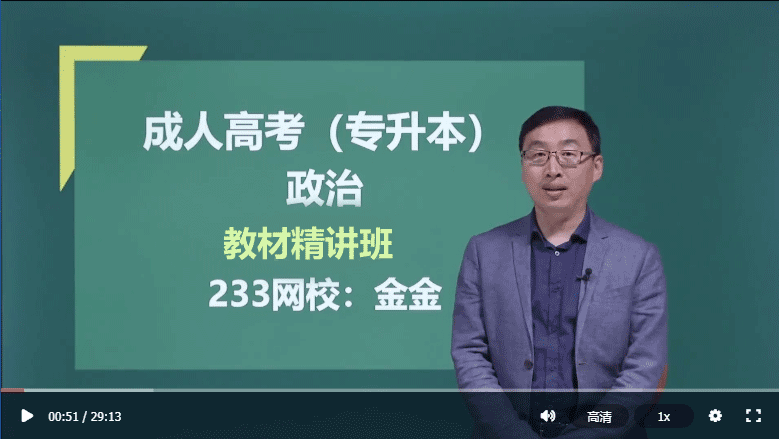хЎщхІц Ё06хЙДцшшБшЏх щЈшЕцтшПшНН(фЙ)
яМ23яМ
Animals can move from place to place, but plants cannot. When an animal is under attack, itcan run away or fight back.. Plants certainly cannot run away, and they lack teeth and claws. Butplants can defend themselves by using both physical and chemical means.
Some plants have their own ways to keep animals away. For example, the leaves of the holly plant have sharp spines (хК) that discourage grass-eating animals. Holly leaves on lower branches have more spines than leaves on upper branches. This is because the lower leaves are easier for most animals to reach..
Some plants, such as the oak tree, have thick and hard leaves that are difficult for animals to eat. Some grasses may contain a sandy material; eating such grasses wears down the animalчЃ teeth.
Many plants also have chemical defenses. Some plants produce chemicals that taste bitter or cause an unpleasant reaction. Some plants may fight against an attack by increasing the production of these chemicals. When a caterpillar (цЏшЋ) bites a tobacco leaf, the leaf produces a chemical messenger. This messenger sends to the roots the information to produce more nicotine. The higher levels of nicotine discourage the caterpillar.
Many plants depend on both physical and chemical defenses. A certain plant in China, forinstance, has prickly (хЄхКч) leaves, and each prickle contains poisonous venom (цЏцЖВ) A single experience with this kind of plant will teach an animal to stay away from it in the future.
1. The holly plant has more spines on the lower leaves because most animals________.
A. are not tall enoughB. like the lower leaves only
C. are not clever enoughD. can get the lower leaves easily
2. To defend themselves, oak trees use________.
A. chemical meansB. physical means
C. bitter chemicalsD. sandy materials
3. How does tobacco protect itself against an attack from a caterpillar?
A. Its leaves fight against the attack by physical means.
B. Its roots send a messenger to discourage the caterpillar.
C. Its roots increase the production of nicotine when it is attacked.
D. Its leaves produce poisonous sand to drive the caterpillar away.
4. What would be the best title for this passage?
A. Plants and AnimalsB. How Plants Defend Themselves
C. Attacks and DefensesD. How Animals Eat Plant Leaves
яМ24яМ
Compassion is a desire within us to help others. With effort, we can translate compassion into actions. An experience last weekend showed me this is true. I work part-time in a supermarket across from a building for the elderly. These old people are out main customers, and itчЃ not hard to lose patience over their slowness. But last Sunday, one aged gentleman appeared to teach me a valuable lesson. This untidy man walked up to my registerяМцЖцЌОцКяМwith a box of biscuits. He said he was out of cash (чАщ), had just moved into his room, and had nothing in his cupboards. He asked if we could let him have the food on trust. He promised to repay me the next day.
I couldnчЃ help staring at him. I wondered what kind of person he had been ten or twenty years before, and what he would be like if luck had gone his way. I had a hurt in my heart for this kind of human soul, all alone in the world. I told him that I was sorry, but store rules didnчЃ allow me to do so. I felt stupid and unkind saying this, but I valued my job.
Just then, another man, standing behind the first, spoke up. If anything, he looked more pitiable. тChange it to me, т was all he said.
What I had been feeling was pity. Pity is soft and safe and easy. Compassion, on the other hand, is caring in action. I thanked the second man but told him that was not allowed either. Then I reached into my pocket and paid for the biscuits myself. I reached into my pocket because these two men had reached into my heart and taught me compassion.
1. The aged gentleman who wanted to buy the biscuits_________ .
AяМpromised to obey the store rulesBяМforgot to take any money with him
CяМhoped to have the food first and pay later DяМcould not afford anything more expensive
2. Which of the following best describes the old gentleman?
AяМkind and luckyBяМpoor and lonely
CяМfriendly and helpfulDяМhurt and disappointed
3. The writer acted upon the store rules because_________ .
AяМhe wanted to keep his present jobBяМhe felt no pity for the old gentleman
CяМhe considered the old man dishonest DяМhe expected someone else to pay for the old man
4. What does the writer learn from his experience?
A.Wealth is more important than anything else
BяМHelping others is easier said than done
CяМExperience is better gained through practice
DяМObeying the rules means more than compassion.
чИх ГцЈш
- 2017хЙДцфККщЋшфИхцЌшБшЏшшЏцЈЁцшЏщЂхчцЁфК03-22
- 2017хЙДцфККщЋшфИхцЌшБшЏшшЏцЈЁцшЏщЂхчцЁфИ03-22
- 2016хЙДцшфИхцЌшБшЏшххВхКшЏщЂхчцЁцБцЛ10-28
- 2016цшфИхцЌшБшЏхЄшшЏщЂхчцЁ14хЅ08-25
- 2016хЙДцфККщЋшфИхцЌшБшЏцЈЁцшЏщЂхчцЁ6хЅ08-04
| ПЮГЬзЈвЕУћГЦ | НВЪІ | дМл/гХЛнМл | УтЗбЬхбщ | БЈУћ |
|---|---|---|---|---|
| гяЮФ(ИпЦ№Еу)ОЋНВАр | ЕЫО§УФ | ЃЄ150 / ЃЄ150 |  |
БЈУћ |
| гЂгя(ИпЦ№Еу)ОЋНВАр | Monica | ЃЄ150 / ЃЄ150 |  |
БЈУћ |
| Ъ§бЇ(ЮФ)ОЋНВАр | ЭѕЗМ | ЃЄ150 / ЃЄ150 |  |
БЈУћ |
| Ъ§бЇ(Рэ)ОЋНВАр | ТогзжЅ | ЃЄ150 / ЃЄ150 |  |
БЈУћ |
| ДѓбЇгяЮФ(зЈЩ§БО)ОЋНВАр | ХЗбєАиСи | ЃЄ150 / ЃЄ150 |  |
БЈУћ |
| гЂгя(зЈЩ§БО)ОЋНВАр | Monica | ЃЄ150 / ЃЄ150 |  |
БЈУћ |
| ИпЕШЪ§бЇ(вЛ)(зЈЩ§БО)ОЋНВАр | ЭѕЬЮ | ЃЄ150 / ЃЄ150 |  |
БЈУћ |
| ИпЕШЪ§бЇ(Жў)(зЈЩ§БО)ОЋНВАр | ТогзжЅ | ЃЄ150 / ЃЄ150 |  |
БЈУћ |
ИЈЕМПЮГЬ
- ИпЦ№Еу-Ъ§бЇ(ЮФЪЗВЦОРр)

- ЭѕЗМРЯЪІ
 УтЗбЪдЬ§
УтЗбЪдЬ§
- ИпЦ№Еу-гЂгя

- MonicaРЯЪІ
 УтЗбЪдЬ§
УтЗбЪдЬ§
- зЈЩ§БО-ДѓбЇгяЮФ

- ХЗбєАиСиРЯЪІ
 УтЗбЪдЬ§
УтЗбЪдЬ§
АрМЖНщЩм
ЬзВЭАќКЌЃКзЈЩ§БОVIPАр/ИпЦ№ЕуVIPАрЃЈКЌОЋНВ+ецЬтНтЮі+ФЃПМЕуЬт)
ЬзВЭгХЪЦЃК1ЁЂЫјЖЈКЫаФПМЕу
2ЁЂПМЧАЗЂЗХ2ЬзЪдЬт
3ЁЂУтЗбжибЇвЛДЮБЃеЯ
ХфЬзЗўЮёЃК1ЁЂУтЗбЬтПт
2ЁЂПЮГЬНВвх+ПЮМўЯТди+вЦЖЏПЮЬУ







 УтЗбЪдЬ§
УтЗбЪдЬ§ 




